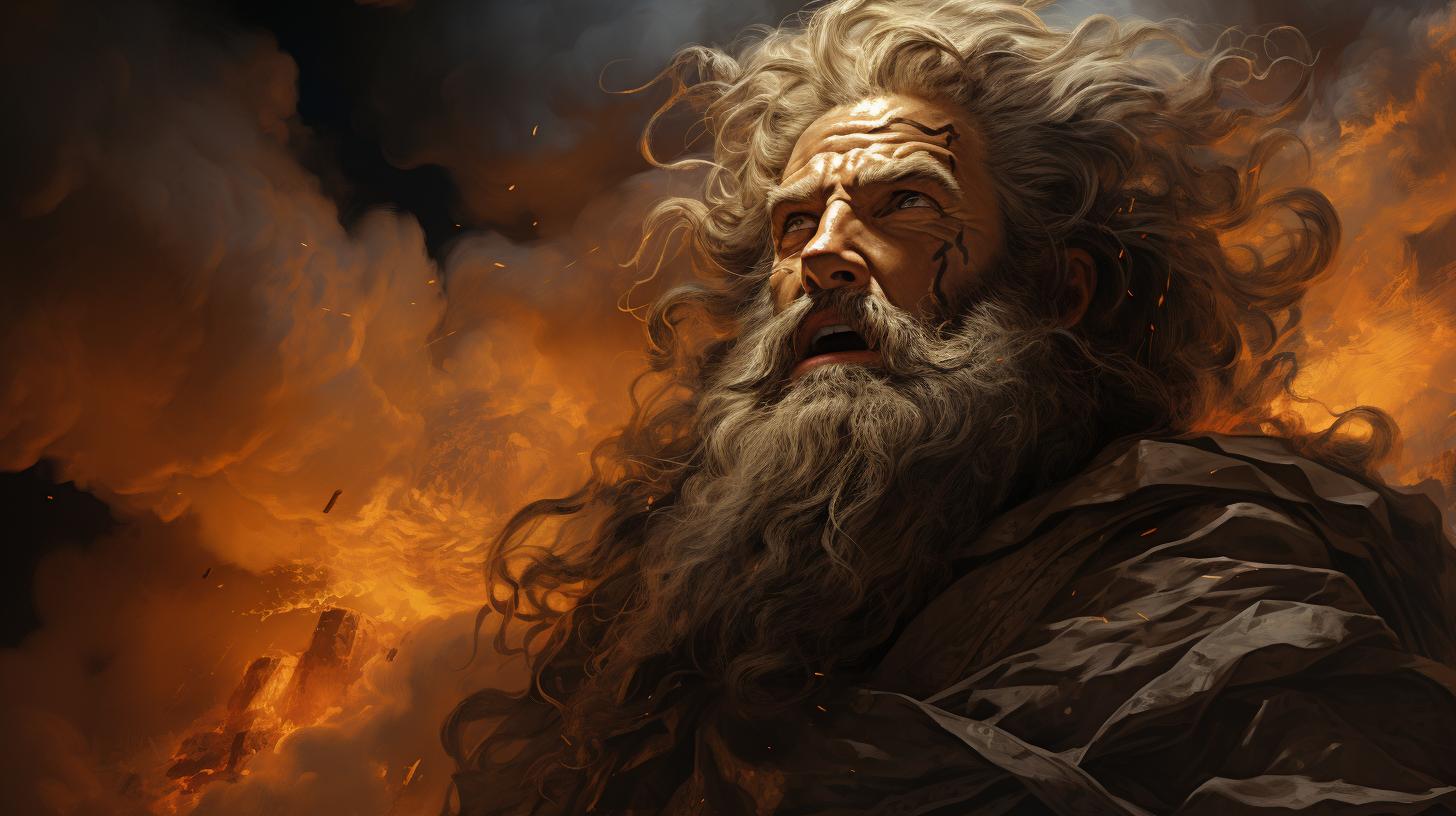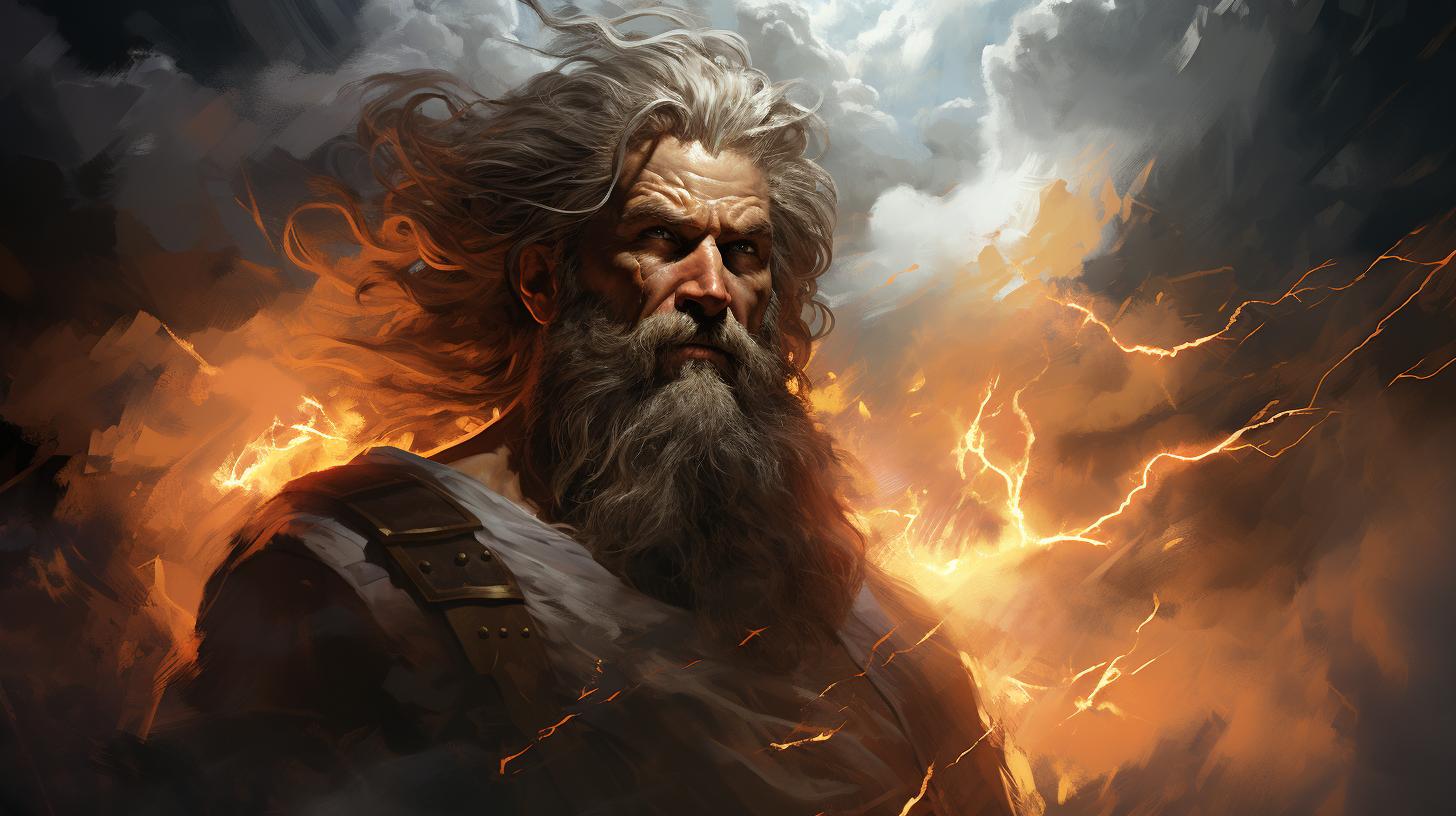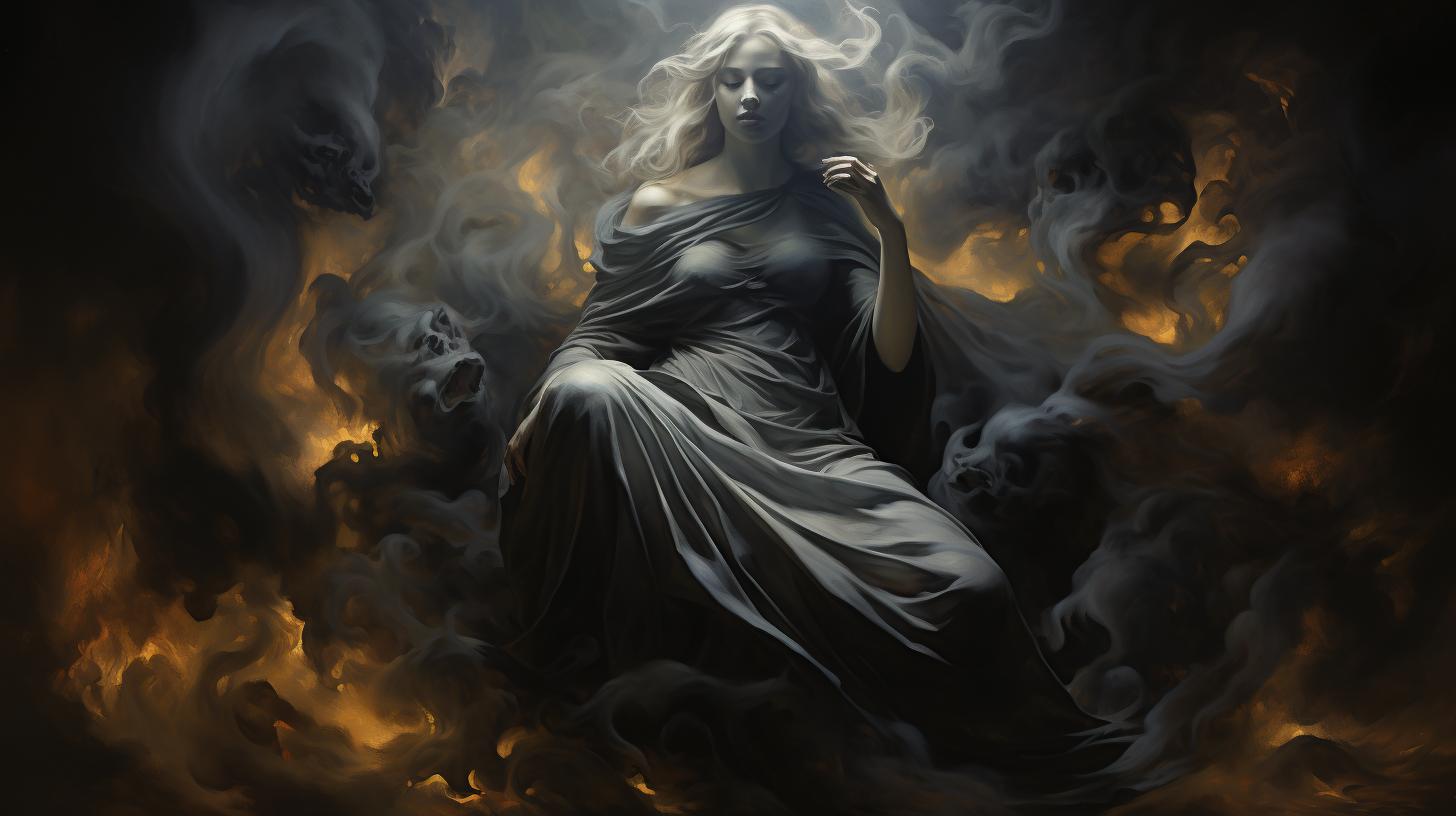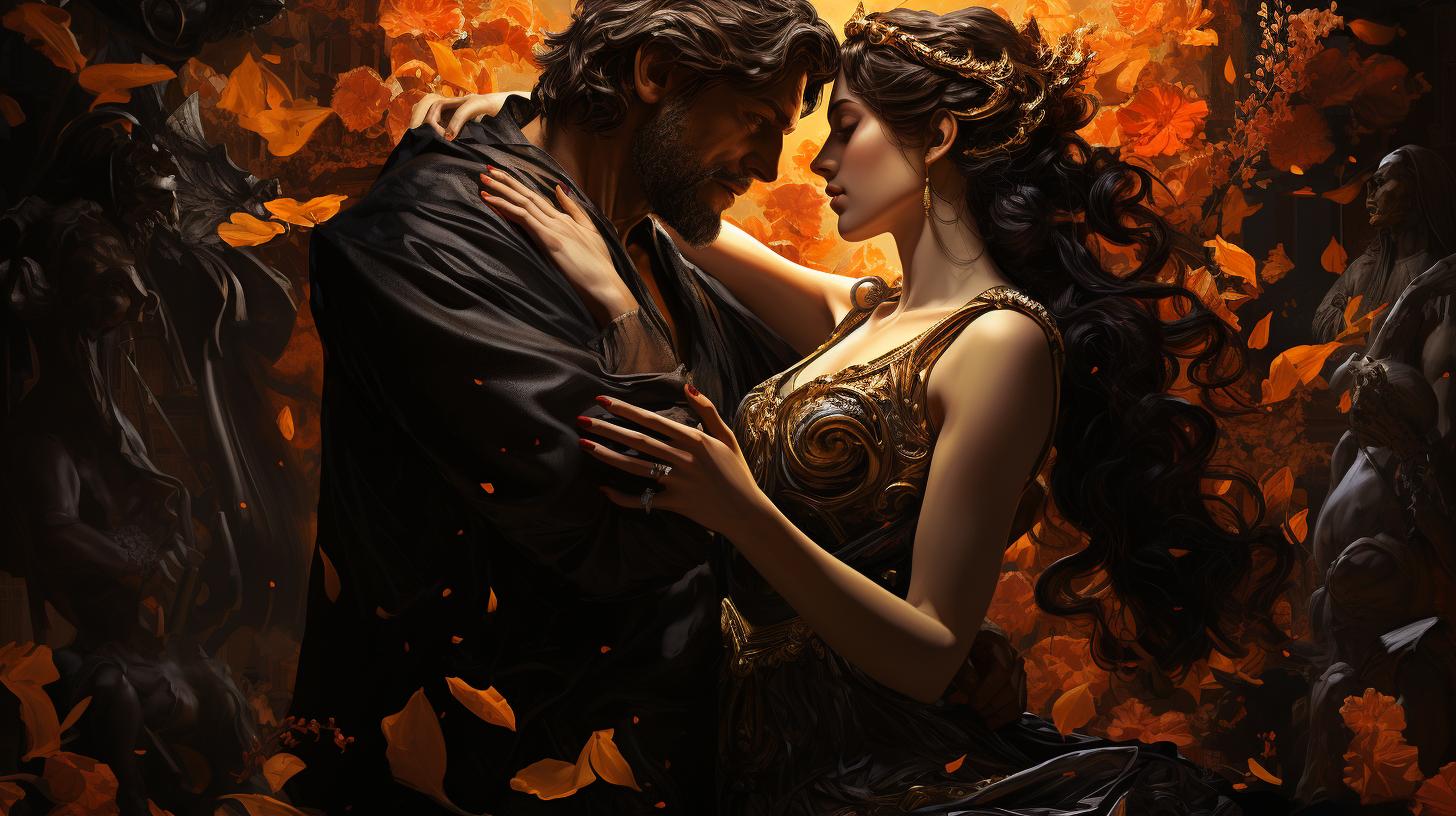‘Notus: The Greek God of the South Wind – Exploring the Mythology and Power of the Southern Breeze’

Notus, the Greek god of the south wind, holds a significant place in ancient mythology as one of the Anemoi, the gods of the winds. Born to Astraio and Eos, Notus is known for his role in creating autumn storms and his fierce encounters with other deities like Euros.
From his mention in epic poems like the Odyssey to his representations in Greek art, Notus’s influence and power are evident throughout ancient Greek culture. Let us delve deeper into the fascinating world of Notus, exploring his mythology, relationships, and representation in various literary works and artistic creations.
Etymology
The word “Notus” originates from Greek mythology and is derived from the Greek term “Notos,” which means “south wind.” The etymology of the name reflects the god’s association with the powerful winds blowing from the southern direction.
In ancient Greek culture, the personification of natural phenomena through deities was common. Notus, as the god of the south wind, held significant importance in the ancient Greek pantheon. The name “Notus” encapsulates the essence of this divine figure, representing the forceful and sometimes tumultuous nature of the winds blowing from the southern regions.
The naming convention of deities in Greek mythology often reflected their characteristics, roles, or areas of influence. In the case of Notus, his name serves as a direct reference to the direction and strength of the winds associated with him.
This etymological connection provides a glimpse into the rich symbolism and cultural significance of Notus as a key figure in Greek mythology and the embodiment of the southern wind.
Mythology
Mythology plays a crucial role in understanding the rich background of Notus, the Greek god of the south wind.
Let’s explore the different aspects of Notus’s mythology, including his place among the Anemoi, his significance in Greek literature, and his presence in ancient Greek culture.
The Anemoi: Gods of the Winds
The Anemoi, also known as the Gods of the Winds, are a group of four directional wind deities in Greek mythology.
Each Anemoi represented a specific wind direction and had its own distinctive characteristics and role in the natural world.
Notus: The Greek God of the South Wind
Notus, often referred to as Notos, is the Greek god specifically associated with the south wind. As one of the Anemoi, he possesses the power to govern the winds that blow from the southern regions.
Notus holds a significant place within the pantheon of Greek gods and holds specific attributes and roles.
Boreas, Zephyrus, and Euros: The Other Anemoi
In addition to Notus, there are three other Anemoi gods who represent different wind directions. Boreas represents the north wind, Zephyrus symbolizes the west wind, and Euros stands for the east wind.
Together, these four deities form a comprehensive system of wind gods in Greek mythology.
Notus in Greek Mythology
Within the vast realm of Greek mythology, Notus is associated with various mythological tales and events. Understanding his parentage and role sheds light on his significance in Greek culture and the natural world.
Parentage and Role
Notus is the son of Astraio, the god of dusk, and Eos, the goddess of the dawn. As the offspring of these two divinities, Notus carries their characteristics and plays a crucial role as the god of the south wind.
His distinctive role involves influencing the weather patterns and bringing forth storms, particularly during the late summer and autumn.
Relationships with Other Deities
Notus’s connections with other deities shape his interactions within Greek mythology. He is known for his conflict with Euros, the god of the east wind, and their clashes often result in dramatic weather conditions.
Notus also takes part in significant events like Poseidon’s storm in the Odyssey, where he joins forces with Zephyrus and Boreas to create a tempestuous atmosphere.
Notus in Greek Literature
The representation of Notus extends beyond mythological tales and finds its way into ancient Greek literature, including epic poems and hymns.
These works provide insights into the appearance, symbolism, and portrayal of Notus as a divine being.
Notus’ Appearance and Symbolism
In Greek literature, Notus is often described as a forceful and powerful deity. He is depicted as a forceful wind, capable of creating strong gusts and turbulent conditions. Notus’s presence is often associated with the onset of storms and adverse weather patterns.
Notus in the Odyssey and Other Epics
Notus plays a role in significant literary works such as the Odyssey, where his involvement in storms and tempests showcases his impact on the narrative. His role in the Odyssey emphasizes his association with powerful weather conditions and his ability to influence the natural world.
Notus in Ancient Greek Culture
The influence of Notus extends beyond mythology and literature, permeating various aspects of ancient Greek culture. His worship and the representation of Notus in art and sculpture provide evidence of his significance in the lives of the ancient Greeks.
Worship and Adoration
The ancient Greeks held reverence for the Anemoi, including Notus, and worshipped them as powerful deities responsible for the winds. Their adoration involved rituals and prayers seeking their favor, particularly during times of storms or calm weather.
Depictions of Notus in Art and Sculpture
The representation of Notus can be found in ancient Greek art and sculpture. Artists depicted him as a winged deity or as a personification of the south wind. These artistic representations showcased Notus’s power and association with the elements of wind and storms.
See also
Related Deities and Mythological Figures
Notus, the Greek god of the south wind, is part of a rich pantheon of deities and mythological figures within Greek mythology. Here are some related deities and figures worth exploring:
- Eurus: Another one of the Anemoi, Eurus is the god of the east wind and is often associated with autumn storms.
- Aeolus: As the keeper of the winds, Aeolus plays a crucial role in controlling the winds and their impact on the mortal world.
- Zeus: The king of the gods, Zeus wields immense power and authority over all aspects of nature, including the winds.
- Odysseus: This legendary hero embarks on numerous adventures, encountering various winds and deities along his journey.
Other Winds in Greek Mythology
Besides Notus, there are three other prominent wind deities within Greek mythology.
These winds, collectively known as the Anemoi, have distinct characteristics and influence different seasons:
- Boreas: The god of the north wind, associated with winter storms and chilling gusts.
- Zephyrus: The gentle west wind deity associated with the arrival of spring and the blooming of flowers.
- Euros: The god of the east wind, known for his connection to autumn and the volatile nature of the season.
Exploring the intricacies of these wind gods can provide a deeper understanding of the mythological world in which Notus resides and the significance of the south wind in Greek culture.
.




















